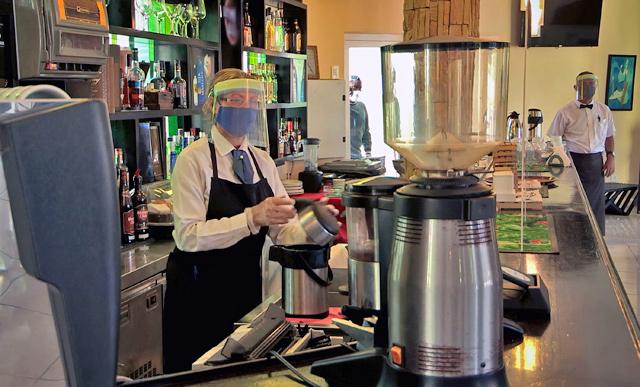- International News
- Sun-2021-02-14 | 05:09 pm

Nayrouz News Agency :
Cuba is undergoing a paradigm shift: After decades of tight, centralised control, the government is opening up the bulk of its economy to the private sector.
While economic decline and spiralling unemployment are the main drivers, analysts say the liberalisation measures can also be seen as an overture to a new US president.
"It is definitely a strong signal at a crucial moment when the US administration has said it is revising the policies of [Donald] Trump towards Cuba," said Ricardo Torres, an economist at the University of Habana.
Six decades of US sanctions, toughened during Trump's term in office, have claimed a heavy toll on Cuba's economy, worsened by the coronavirus crisis and a steep drop in tourism, a critical sector.
Last month, Havana said Trump's sanctions cost the country some $20 billion, adding that "the damage to the bilateral relationship during this time has been considerable."
The Cuban economy shrank 11 per cent in 2020, and exports declined by 40 per cent.
At the weekend, the government in Havana announced it would authorise private enterprise in a bid to boost its economy and create jobs, though limited to individual entrepreneurs for now, not businesses.
The number of authorised private activities would grow from 127 to over 2,000, but excludes 124 sectors including the press, health and education, which remain in government hands.
The reform represents a major ideological shift in a country where the government and its affiliate companies have monopolised most of the economy since 1961.
'Long overdue'
Cuba began timidly opening up to private capital in the 1990s before fuller authorisation in 2010, followed by a boom after the historic warming of ties with Cold War rival the United States in 2014 under then-president Barack Obama.
Today, about 600,000 Cubans — some 13 per cent of the workforce — are employed in the private sector.
Most work in hotels, restaurants, transportation and tourist accommodation.
Millions of people work for the government, but the exact number is not known.
Trump reversed many of Obama's moves to ease tensions with Cuba.
He banned American cruise ships stopping over on the island, blacklisted a range of Cuban companies and bosses, prosecuted foreign companies doing business there, and made it difficult for Cubans working abroad to send money home.
The new US President, Joe Biden, has promised to bring back some of Obama's policies to normalise ties, while also paying attention to human rights concerns in the country of some 11.2 million people.
Some in the United States have welcomed Cuba's policy shift, which will for the first time see private salary earners in sectors such as agriculture, construction and IT.
"This is long overdue, it's welcome news. And the United States should affirm that the embargo was never intended, and will not be used, to penalise private enterprise in #Cuba," US Senator Patrick Leahy said on Twitter.
Former Obama adviser Ben Rhodes tweeted the announcement was "a big step forward for Cubans and a welcome signal. The Biden Administration can make this more beneficial for the Cuban people by resuming the opening to Cuba as soon as possible."
Scepticism
For many of Cuba's leaders, the change may be difficult to swallow.
"There is still a lot of scepticism regarding the word 'private'," which many see "as people who can conspire against power," said Cuban economist Omar Everleny Perez.
But politicians appear to have read the writing on the wall just like in Vietnam in the 1980s, where the Communist Party managed to stay in power by heavily liberalising the economy.
"We are still a little far from that, but [the Cuban leaders] have it in mind," said Perez of the Vietnam example.
The southeast Asian country, too, was under US sanctions, lifted in 1994 after rapprochement with Washington.
"So from a geopolitical point of view, there is a lesson that is important to recognise," said Perez.
For his part, Torres said Vietnam's economy was smaller and the country more rural, making change easier.
But there is a lesson to be learnt from the fellow Communist country's experience: "If you want to create jobs, you have no choice but to create a framework for the private sector to grow."
John Kavulich, president of the US-Cuba Trade and Economic Council, said the Cuban government must now convince the Biden administration that it is serious about restructuring the economy.
"If the Biden administration believes the [President Miguel] Diaz-Canel administration is prepared to do what is difficult, maintain the processes despite challenges, then far easier for Washington to create opportunities for engagement," he said.













